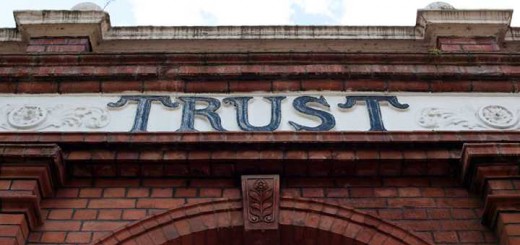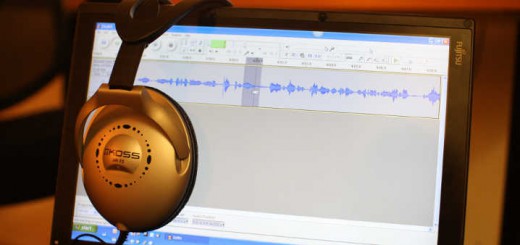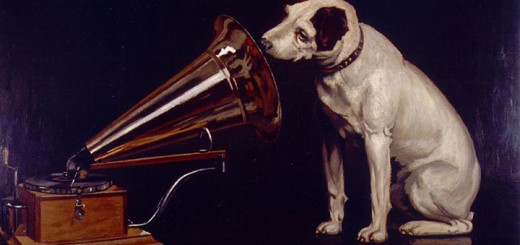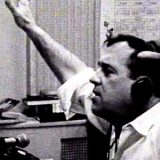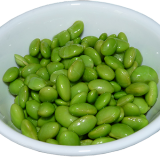Your Podcast Will Soon Be History
Every time you upload a podcast, you’re making history. And, no, that’s not a figure of speech.. Like other audio recordings, podcasts will be part of archeological finds decades from now, as historians work to reconstruct the early 21st century.
Or will they?
When it comes to preserving the sounds of our culture we tend not to do a very good job. This came to light recently when a professor at Kansas University discovered what is perhaps the only known recording of James Naismith. Nope, he’s not the crooner who came in second to Rudy Vallee in a talent contest.
The Naismith recording explains basketball from the perspective of someone the NBA can blame for the millions in revenue it makes every year. James Naismith invented basketball.
How could an important part of American history be lost for nearly eight decades?
Hard to Hear
“So much of early recording has been lost,” Dana Gerber-Margie told me from her home in Madison, Wisconsin. Gerber-Margie is an audio archivist working for the Wisconsin Historical Society in Madison, Wisconsin.
Whether you believe it or not, podcasts will be windows into the cultural, political, emotional and philosophical shape of life in the early- to mid-20th century through which historians will look at the early 21st century a hundred years from now the way This is Your FBI, Amos ‘n’ Andy and Ted Mack’s Original Amateur Hour gave historians a glimpse into the mid-20th century.
Many recordings or early radio programs didn’t survive because the, “… physical media used—wax cylinders, acetate discs, magnetic wire and even magnetic tape—didn’t stand up over time,” according to Gerber-Margie. Somewhat tragically, there’s also a human component involved.
One Man’s Trash is Another Man’s Treasure
Until the early 1930s, most radio shows weren’t recorded because few people thought anyone would want to listen to them more than once. In the 30s, shows were recorded so the East Coast live performance could be fed to the West Coast*. After airing, those recordings were often tossed into the garbage.
You might think that the problem has been solved. First of all, there are audio archivists, like Gerber-Margie, actively seeking out and preserving recordings. So much for the social problem of nobody cares. As for the technical problems, we’ve come a long way since wax cylinders. In fact, we’ve come a long way since our computers contained a whopping 2GB of hard disk storage. CDs, DVDs and the cloud mean we can save just about anything for as long as we want.
That’s what many of us felt when we moved from tape cartridge storage to 5-1/4 inch floppy disks, both of which, I might add, are pretty much unreadable these days.
As are 3-1/2 inch floppy disks, MacPaint files and a host of other computer formats.
“It’s important for audio preservation to pick a format that will be readable years in the future,” said Margie-Gerber. Of course, no one knows what those formats will be. Adobe’s PDF has had a great run, as have mp3s, jpegs, and several video formats. At the same time, the AAC audio format is also popular. Could it nudge mp3s aside one day? If it doesn’t, something else surely will. AAC demonstrates we haven’t reached the practical end of audio compression. As online audio becomes increasingly popular, better compression becomes more desirable. A hundred years from now, scientists will be scrambling to read mp3s the way public television stations scramble to find 2-inch videotape machines to replay shows from the 1960s.
That doesn’t mean as podcasters we’re corks bobbing helplessly on the waves of historical change.
Make Your Voice Heard
We need to be proactive when it comes to protecting our podcasts and recognizing them as pieces of a larger tapestry that is media in the early 21st century. According to Gerber-Margie, it’s not enough to think that other people will handle this for us.
“The Wayback Machine only takes snapshots,” she said, referring to the website that archives the web on a regular basis. “It’s not the continuos archiving many people think it is. There’s no guarantee it captures everything on your site, including links to all your podcasts.”
Nor are those links worth much. “Links rot,” Gerber-Margie said, meaning that they are the worst kind of preservation. Bookmarking a link is only valuable as long as the link stays around. If you abandon or shift your link the bookmark is worthless.
Gerber-Margie also said that the cloud service you choose is also important. Businesses come and go. The major hosting platform of today may be out of business in a few years. What happens to your podcasts is important. It’s not enough that you have copies of them. It’s important they are available in the future. You have to think long range.
One thing you might do now is begin your personal archiving mission. The Library of Congress offers tips for preserving personal audio.
With a little preparation, your podcasts won’t be history in 50 years, they’ll be a part of it.
Dana Gerber-Margie is a native of California’s Central Coast, who came to Madison to attend UW-Madison’s School of Library and Information Studies program. She stayed in Madison to work as an audio archivist at the Wisconsin Historical Society. In addition to her archivist duties, Dana publishes Audio Signal, a weekly newsletter with links to audio in the news, and 5-10 pieces of recommended audio, culled from over 250 podcasts, audiobooks and links to archival audio collections.
[jetpack_subscription_form title=”Get Every Blog Post” subscribe_text=”Enter your address to receive every new post by email.” subscribe_button=”Join Us >>”]



